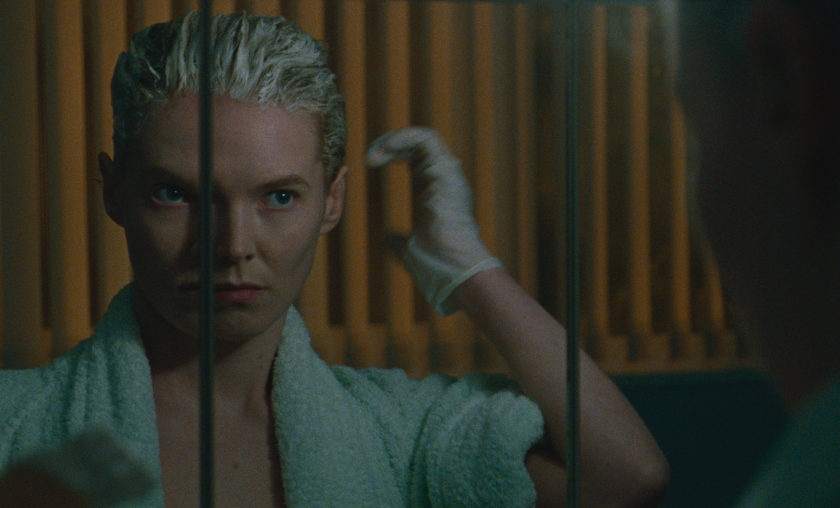Vassilis Kroustallis review the UK LGBT drama 'Blue Jean' by Georgia Oakley.
Georgia Oakley's first feature 'Blue Jean' looks like a big dive into the pre-global world of the 1980s, where national identity mattered more than individual identity (and in the UK, conservative identity mattered more than everything else). It is admirably crafty in its homophobia treatment, from the side of those who dare not speak about their orientation status.
Jean (Rosy McEwen) is a divorced PE educator in North East England; by dyeing her hair blond (in the film's memorable beginning) she seems to secretly parade her lesbian identity -which is tolerated, but cannot be told at school. Margaret Thatcher's proposed homophobic bill (and its section 28, which prohibits same-sex family education at schools) is a good old impediment for Jean to come out. Unlike her, her more raucous partner Viv (Kerrie Hayes) has no qualms over being who she is; the consequence for Jean is being closeted at school (and her netball school team) and only open in her pub and billiard ball escapades.
Things are to change when a new, out lesbian student Lois (Lucy Halliday) comes and becomes the bullying laughingstock of her netball classmates -at the same time, she fights back in return. The glass ceiling around Jean is ready to crack, and she needs to take sides.
'Blue Jean' chooses an old-fashioned closeted myth (which still looks old-fashioned in its production values), but internalizes it as a sequence of small moral decisions. It is a dramatic joy to watch Jean getting more closeted the more she is trying to be more indifferent; fortunately for the film, the political and social background never becomes a direct oppressor, but only shows as a reminder of the power -which, by its very presence, triggers a set of internal reactions.
Being mostly a one-woman moral internalized drama, 'Blue Jean' still includes its secondary stories (the condescending sister, the bullying kid, and the supportive but stern director) which make Jean's environment easily translatable to the current era as well. A rather hasty reconciliation of the last act removes some of the power of the still extrovert LGBT film. But 'Blue Jean' succeeds in showing that the middle-of-the-road approach in identity issues is never a good guide for happiness -but a fine guide for drama.
contributed by: Vassilis Kroustallis
'Blue Jean' screened in competition at the 63rd Thessaloniki Film Festival

